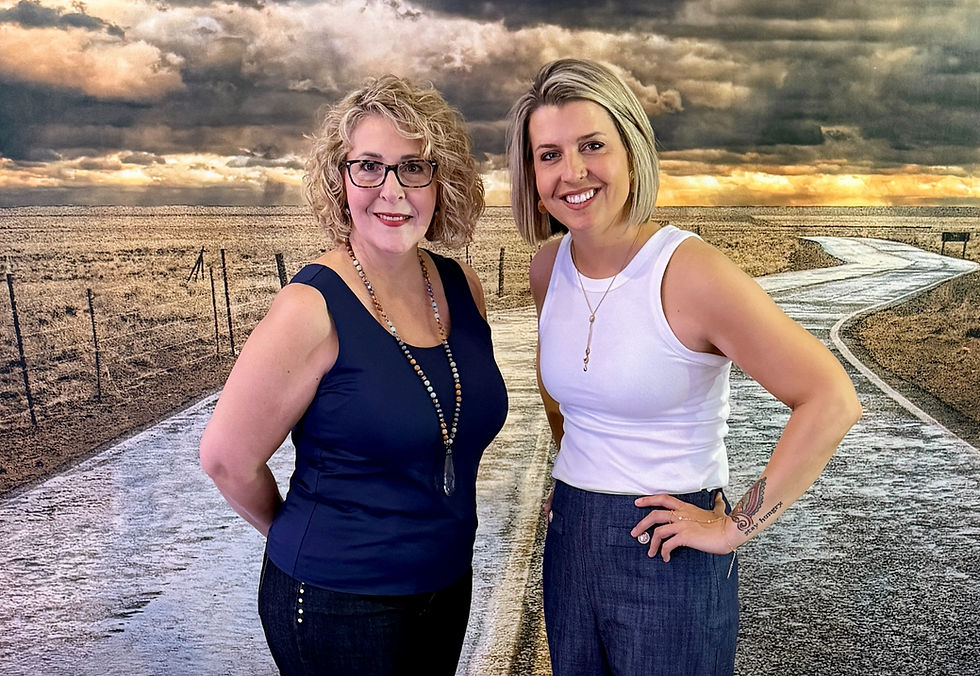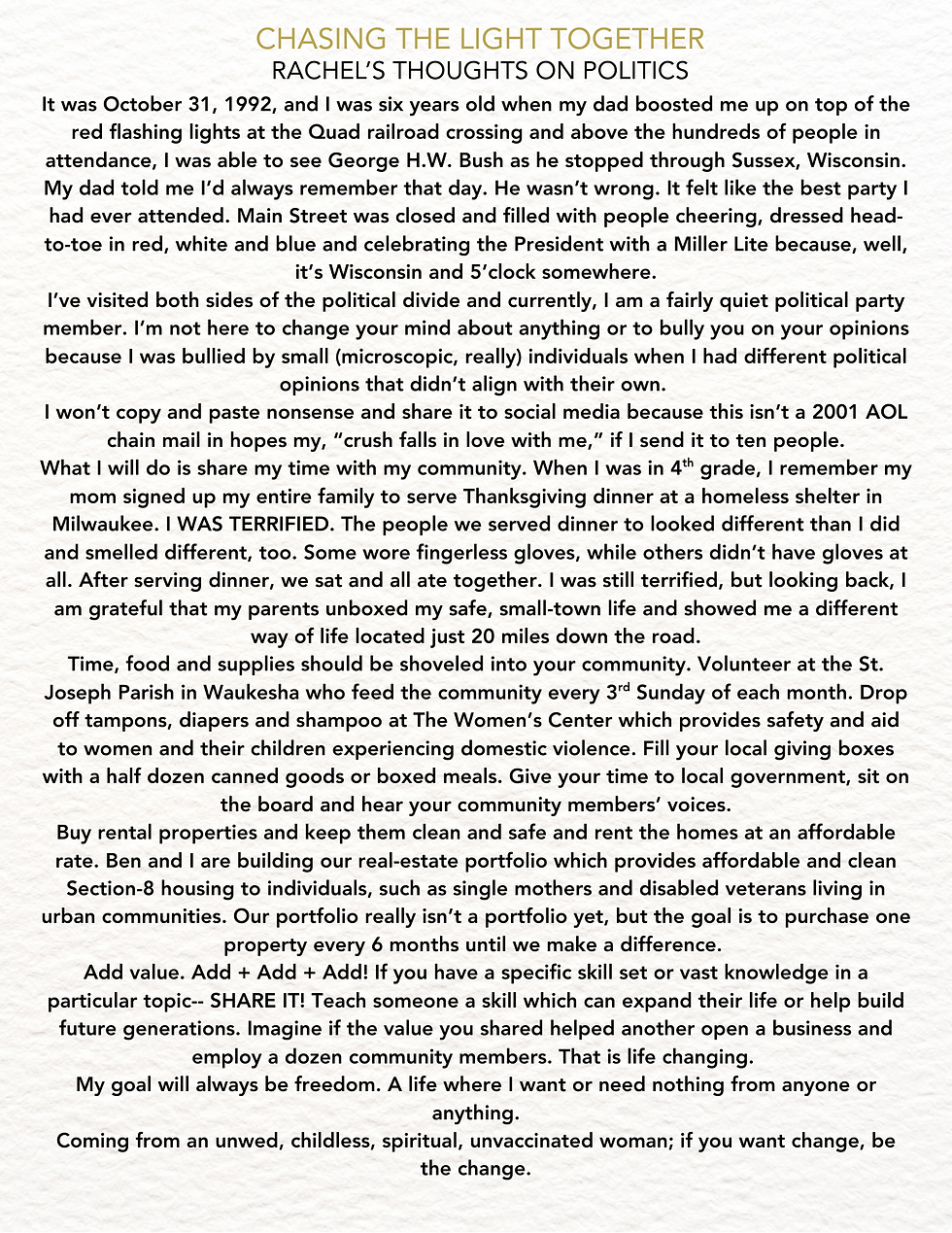Chasing the Light Together Blog No. 5
- yourlighthousecoac
- Sep 1, 2025
- 5 min read
Grief
Julie’s Thoughts on Grief
At the end of every summer, I struggle with the change in sea
sons. There is a melancholy that I work to shake. I used to think it was because I was readying myself
and my classroom to go back to teaching, but after leaving the classroom, it still
persisted.
It has only become clear to me in the last 5 years that this heavy sadness and mood
that I cannot seem to get over is grief. I have come to expect it now and recognize it as
the nights begin to cool and the days get a little less warm.
The year I lost my Dad I was a college student, finally having gone back to finish my
degree and make something of myself. I was married and my husband was in the
throes of a new job. I was struggling through one of my last tough math classes in a
difficult semester when I stopped at home to find my dad coughing so hard that he was
crying out in pain.
Difficulty breathing and coughing wasn’t new for my dad as both my parents were
smokers. COPD and inhalers were part of my dad’s daily life. But immediately, I knew
something was wrong. He was holding his ribs and crying out between coughs and for
a man that rarely showed pain or emotion, I knew this wasn’t normal.
I turned to my mom and asked her if they called the doctor. She said that they had, and
he could get an appointment in a few weeks. I asked for the number. I called the doctor
and told them if they didn’t get him in sooner, I’d be taking him to the emergency room
that day. I was polite, but firm. They told us to come at one o’clock.
What followed is much less clear in my mind because it was traumatic and exhausting
and so painful. The essence was he had lung cancer. The cancer began attacking his
adrenal glands and his body was filled with an insane amount of cortisol. In plain speak,
it was making his bones brittle, so the coughing was literally breaking ribs. As the illness
progressed, the fractures continued and included compression fractures in his spine.
In short, we found out he was sick in October and by Thanksgiving he was gone.
I was 26 years old.
No one wants their loved one to suffer, but how do you adjust to the demise of the
strongest man you know and then give him up in the space of a few months?
I can’t even remember how I finished that semester. I know my math class was saved
by the grace of that teacher and an amazing friend. I spent every moment I wasn’t in
class at the hospital or at the house with him. I caught up on sleep in a chair next to his
bed and woke up with a neck that refused to turn more than once. He saved his
crossword puzzle (a daily task that made him happy) for my visit and we’d fill it out
together. Even if I came at 8pm, we’d start it and get as far as we could before he fell
asleep.
When he took his last breath, we were all at the hospital with him and he was made
comfortable with medicine. It was the day after Thanksgiving.
We had cooked a meal at home the day before and ate in silence. We brought a plate
to him in the hospital. I don’t remember him eating much but I do think he tried. It was
really just for show. There was a lot of slipping in and out of consciousness at that
point. By then, I was really just grateful that it was over and he was at peace.
Six years later, we lost my father-in-law on Thanksgiving Day. It was a longer battle this
time, but one that was kept from us until the options were expired. The pain began
anew.
Therapy is not new to me. I have talked through both of these deaths until there was
nothing more to say. The pain doesn’t lessen and it doesn’t get easier. During the few
years that I tried to suppress the “feel” of this season, it snuck up on me and hit me
even harder.
So, each year, I do my best to enjoy every summer day. We boat without fail, every
weekend, and I let the lake and the sun fill my soul with warmth. I do this all in
preparation for what I know will be the hardest months of my year, as they have been
for the last 29 years. It is a matter of survival and a matter of how I grieve and is not
something I’ll ever take for granted.
Rachel’s Thoughts on Grief
I hope grief always stays with you, not like an unbearably heavy boulder, but a smooth pebble
in your pants pocket, and it remains a constant reminder of all the unexpressed love for those
who have passed and the consistent push to live boldly, freely and authentically.
I can’t remember my exact age, but I had never seen a crowd so large. My babysitter’s sister
tragically passed away, and as a family, we attended her funeral. My elementary mind had only
seen crowds this large at Six Flags. People were literally collapsing in such guttural pain,
sobbing, and begging to bring her soul back to her body. Hundreds of pictures were
thoughtfully tacked onto dozens of poster boards. Flowers brightened the dark creases and
crevasses of the church. At that young age, I knew what death was, and although I had
questions, I knew right then and there that I wanted to be celebrated and loved as deeply as my
babysitter’s sister was.
What does it take to fill an empty church, stairwell, entryway and a parking lot?
I’m still working on the answer.
Living is for the living, so let’s fucking live. Stop over thinking, lay on the grass, take control of
your health because you will die sooner if you don’t. Give your time and love to those special
souls, and the not so special ones, they can find others to love them.
We are the creators of our life. We are liable for how we are currently living. We are
responsible for the nourishment we bring to ourselves and others.
If you live well, you will die well.
Julie and Rachel Wrap it Up:
Grief carries many faces—sometimes it lingers like a heavy season that returns year
after year, shaping the rhythm of our lives, and other times it rests quietly like a pebble,
urging us to remember, to love deeper, and to live more fully. Julie’s past reveals how
grief can carve itself into our days, tied to memories, losses, and the annual ache of
absence that never truly fades. Rachel’s thoughts remind us that even in the weight of
sorrow, grief can be a teacher, a gentle prompt to embrace joy, connection, and
authenticity while we are here. Together, their perspectives remind us that grief is not
something to be solved or outgrown. Grief can be both a wound and a guide, a reminder
of love that endures and a call to live in its honor.








Comments